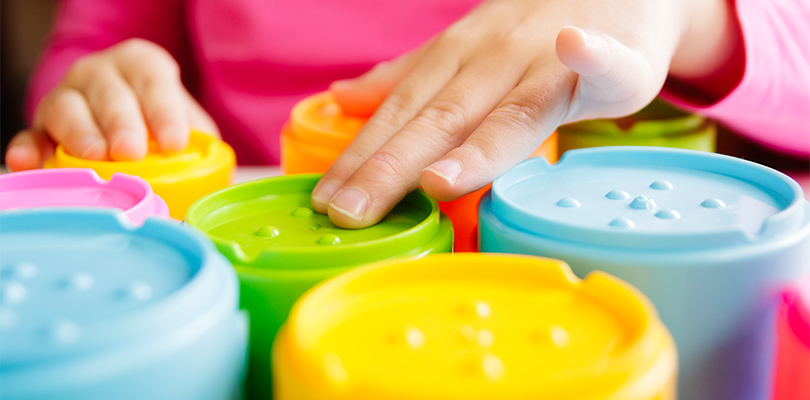What to Know About ADHD in Students
If your child has ADHD, it can be stressful. You may wonder, “why me?” as you struggle to figure out how to raise a child in a world that you may feel was not made for them. Your child may eventually have their own “why me?” moment.
Yet, your child’s success depends on your willingness to understand them and help them understand themselves. If you want your child to succeed in schooling and their education, then there are some things you need to know about ADHD in students.
ADHD and Executive Function
Many of your child’s behaviors and difficulties are due to ADHD impairing their executive function. Executive function is your ability to control yourself. It lets you:
- Pay attention
- Organize
- Moderate tasks
- Make decisions
- Process and manage emotions
- Process and manage thoughts
- Act according to the expectations and customs of the setting they are in (you do not act the same way at a home as you do at school)
Other children develop their executive function with little effort compared to children with ADHD.
Common Symptoms of ADHD
ADHD symptoms fall under three main categories: hyperactivity, impulsivity and inattention.
In children, these symptoms look like:
- Talking without raising their hand
- Talking too much without realizing it
- Not sitting still when expected to stay seated
- Interrupting other children during class or conversation
- Inability to pay attention to something boring (like a lecture or lesson)
- Taking too long to complete an activity
- Losing school supplies and homework
- Quickly forgetting what they learned during a lesson
Why these symptoms occur has a lot to do with executive function and dopamine. Since we already discussed executive function, let’s talk about dopamine.
Dopamine is a chemical in your brain responsible for motivating you to engage in behavior. Dopamine is triggered by curiosity, challenges, urgency and the feeling of interest. If a child feels bored during a lesson, it’s because they are not interested in the lesson and it does not trigger the release of dopamine. If the lesson was interesting to the student, their dopamine levels would increase along with their ability to learn the lesson.
There are many different ways of treating ADHD without meds, examples include lifestyle and dietary changes to building a routine.
4 Strategies for ADHD Children to Use From Elementary School to College
Small Classroom Sizes
One of the best things is to get your child into a school with small classroom sizes. Studies have shown that children with ADHD perform better academically in classes of 8 to 15 students. Teachers say a large class size prevents ADHD students from learning. Large classroom sizes can be noisy with lots of distractions. Teachers may not have time to give your child one-on-one attention.
You might think a small classroom size is weird or unnecessary. However, the traditional public-school system is not designed for students with ADHD; it is designed for non-ADHD children. It’s unfair to expect a child with ADHD to succeed in an environment that puts them at a disadvantage.
Incorporate Physical Activity
Make sure your child gets plenty of physical activity at school and ask their teacher if it is okay for them to walk around doing their schoolwork on a clipboard. Make sure they get recess as much as possible and make sure they do not lose recess as punishment. Ask their teacher to punish them a different way instead.
A study shows that children with ADHD were more likely to behave inappropriately on days they did not have recess compared to days they did have recess. Many teachers will agree to let your child get extra physical activity since they are just as eager for your child to behave and succeed as you are.
Create To-Do Lists
Start each day with a list of what needs to be done. This is basically a to-do list, but you should let your child come up with the name for it. By knowing what needs to be done, you and your child can decide what to prioritize, giving you an opportunity to teach them organization and time management. You’ll also be giving them a stake and share of the responsibility which will make them more interested in the process. By using this strategy in middle school, your child will be able to use it more independently in high school, preparing them for college.
Use a Reward System
Use a reward system and enforce it on a daily basis. Making a deal with your child to give them a reward for each good mark they get on their report card is one example. Don’t expect the idea of a reward to be enough though.
A reward will motivate your child… at first. The problem occurs with following through on your child’s part. They may forget, they may act on an impulse, they may get distracted. ADHD can cause memory problems.
What Can Parents Do?
This is where you come in as a parent. If your child starts each day with a list of what needs to be done, you can also end each day with a review of the reward system. If you simply remind them each day, it will help them develop skills essential to their academic success. Don’t just say “take out the trash” and expect the trash to be taken out. It probably will not be done.
Sit down with them each night before bed or whenever you have time and talk to them about what they need to do to earn their reward. To get a strategy tailored to your child, talk to an ADHD specialist.







